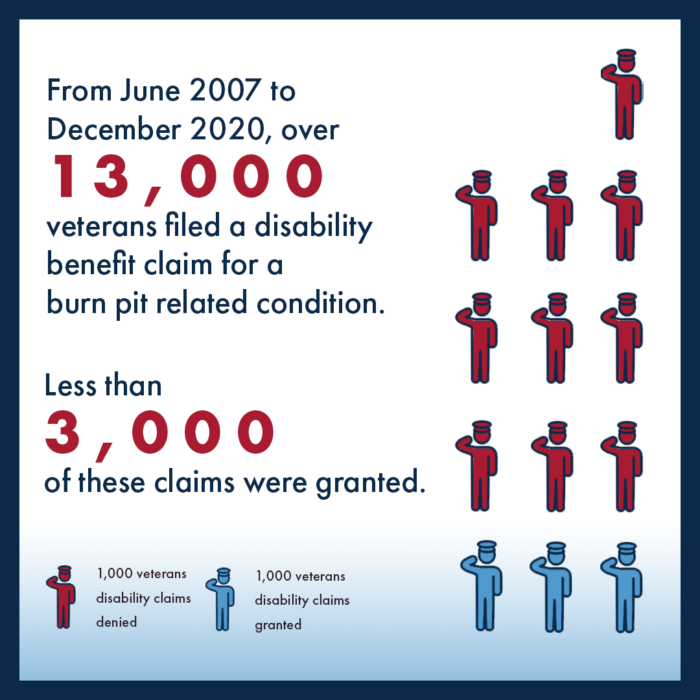House Now Considering New Version of Toxic Exposure Bill
WASHINGTON, DC — When Honoring Our Promise to Address Comprehensive Toxics (PACT) Act passed the House in March, it was expected to be a very hard sell in the Senate, with many House Republicans stating that the final estimated price tag of $321.7 billion over the next decade would keep it from ever becoming law.
After extensive negotiation, however, Democrats and Republicans crafted an amended version of the bill that both sides could live with, passing it last month, 84 to 14. The amended bill was then handed back to the House, where it is almost assured to pass.
Significant pressure from veterans groups and national publicity around the legislation and the topic of toxic exposure in general certainly played a role in convincing budget-conscious legislators, as did the changes to the bill, which both add to its impact and spread the cost out over time.
The core of the PACT Act remains the same: That is to add 23 toxic exposure-related conditions to VA’s list of service presumptions; expand full VA healthcare eligibility to post-9/11 combat veterans, allowing them to receive VA care for any illness; and improve the framework for establishing future presumptive conditions.
Two key additions to the legislation pave the way for both the creation of new VA facilities and the hiring of new employees.
One amendment authorizes leases for 31 new medical facilities across the country, mostly outpatient clinics. VA requires Congressional approval for all lease agreements over $1 million. Consequently, this causes significant delays in lease approval, leaving some communities waiting years for VA to even obtain land on which to begin construction.
Other amendments combine to give VA broader hiring abilities and to direct those new hires to places that need them. The bill gives VA higher pay caps and the latitude to hand out more merit awards and bonuses. It also allows pay caps to be waived entirely for employees whose facility is closing or being realigned, which legislators hope will be a powerful tool for VA to use to keep those employees should they have to relocate.
One amendment directs VA to create a rural recruitment hiring plan and then provides the department with $40 million to use to buy out the contracts of healthcare professionals so that they can sign four-year contracts with VA to work in rural areas.
Adjustments to PACT
All of this would have added billions on top of the already steep cost if not for the adjustments the Senate bill makes to the timing of when the presumptive service conditions are added and when veterans are made newly eligible for VA medical care.
The new conditions will be added to the presumptive service list over the next few years rather than all at once. Healthcare eligibility will be spread out even more, starting in October 2024 for veterans who served between 1990 and 2001 and ending in 2032 for the most recent veterans. This phasing in does not apply to veterans who are over 85, terminally ill, homeless, under extreme financial hardship or capable of demonstrating other sufficient cause. Those veterans will be eligible for medical care in October 2024.
This phasing in lowers the estimated 10-year cost of the bill to $278 billion, still a considerable amount but one palatable enough to pass the Senate.
“This bill would help us advance one of our top priorities, namely getting more veterans into VA care,” VA Secretary Denis McDonough said at a press conference last month. “Study after study shows that vets in VA care do better. This legislation could bring up to 3.5 million more veterans into our care. … It will result in better outcomes for vets across America.”
He added, “This bill will also invest heavily in VA claims processing, VA’s workforce and VA healthcare facilities. Which we will need—and more—to deliver this massive expansion of VA healthcare and benefits.”
Asked at a Senate budget hearing last month whether the bill would disrupt care for veterans already in the VA system, McDonough assured legislators that it would not.
“I believe this is a very important piece of legislation. I think it will be very difficult to implement. But oftentimes the most important things are difficult. And I think we’re ready for it. We’ve been preparing for this,” he declared. “I think we can do this and do this well, and in all cases do it transparently with you so you understand exactly what we’re doing.”




